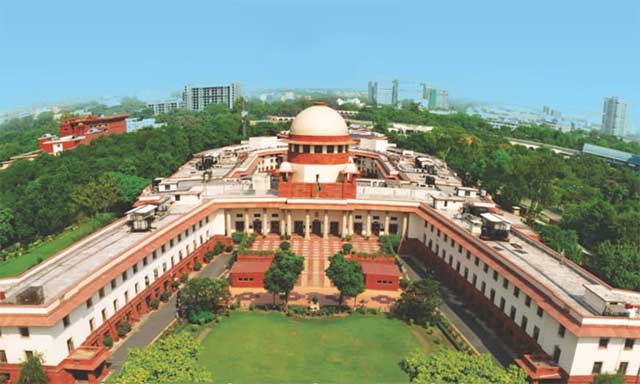New Delhi, May 12 (IANS): The Supreme Court on Thursday said that future visa applications of persons, blacklisted during the 2020 Tablighi Jamaat congregation, held at the capital's Nizamuddin Markaz, should be considered uninfluenced by the blacklisting order.
A bench, headed by Justice A.M. Khanwilkar disposed of the petitions filed by foreigners belonging to 35 countries, who were blacklisted by the Ministry of Home Affairs, on the allegations of having indulged in Tablighi activities in 2020.

The bench, also comprising Justices Abhay S. Oka and J.B. Pardiwala, said without going into the questions of law raised by both sides, there is no blacklisting order served on any of the foreigner petitioner nor any such blacklisting order was placed on record by the Centre.
The top court directed the authorities concerned to examine the future applications for grant of visa -- made by the petitioners or similarly placed persons -- on a case-to-case basis. Nearly 3,500 persons were blacklisted in connection with the Tablighi Jamaat congregation.
The bench added that future visa applications of the foreign nationals should be considered as per law and uninfluenced by the stand of the Centre, which blacklisted the foreigners for 10 years.
The petitioners were represented by senior advocate C.U. Singh and the petitions were filed by advocate-on-record Fuzail Ahmad Ayyubi. The petitioner had argued that no blacklisting order was served on them or any other similarly placed person.
Solicitor General Tushar Mehta, representing the Centre, submitted that there is a provision that the affected can make a representation for revocation of the blacklisting, but after a decision is taken, they cannot challenge it.
He contended that if the same thing is done by the government of a sovereign nation with its citizen, it would be completely unacceptable, but the yardstick would be different while dealing with a foreigner trying to enter your territory.
The bench pointed out that future entry is the prerogative of the government, and even if blacklisting is set aside, the person's entry remains on office record, and if one makes a representation, perhaps the government will rethink.
The top court said the petitioners have already left India, consequent to cancellation of visas and the only issue remains is about blacklisting orders passed by the authorities concerned.
It added that while considering visa applications, it will be open to the authorities to take into account all aspects of the matter as may be permissible in law.